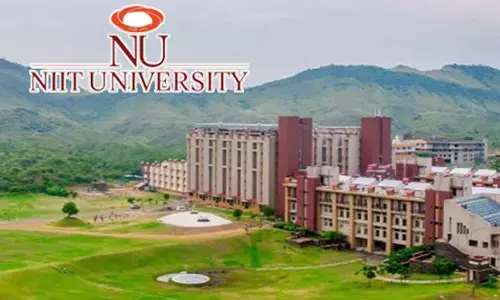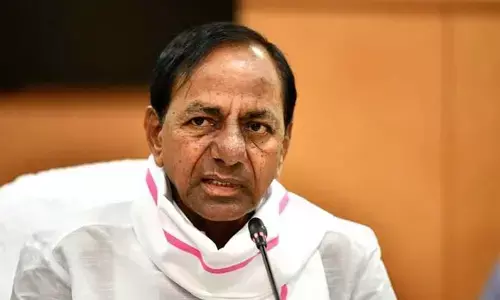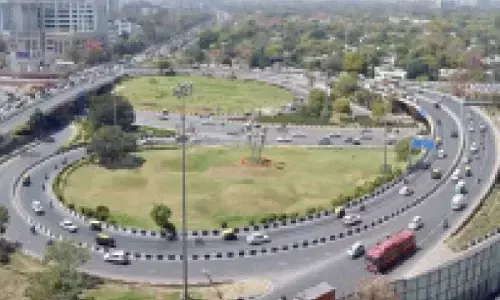Explain action on Law Commission Reports

The people have a right to good governance, which is possible through the tools of good laws. Law needs to be improved and modified as per changing needs of society and emerging new problems. Besides toning up governance, the law has a function of enforcing the justice.
The people have a right to good governance, which is possible through the tools of good laws. Law needs to be improved and modified as per changing needs of society and emerging new problems. Besides toning up governance, the law has a function of enforcing the justice. Governments had the habit of ignoring the Commissions and their reports. The Law Commission of India is no exception. Almost in every seminar or academic discussion, we hear the statements that law needs to be reformed. The Law Commission is meant for suggesting the needed reforms. So far it gave 244 Reports suggesting reforms. Then what happened to those recommendations and suggestions to reform the law? Whether any thought or action came forward from the Government which is supposed to consider those reports?
We cannot say that every report is dust-binned. Some of the recommendations were acted upon, but most of them are not. Senior Advocate of the Supreme Court Maniram Sarma sought to know through his RTI applications from the Ministry of Legal Affairs and Ministry of Justice how various ministries responded to the recommendations. He wanted the information on each every report from the ministry concerned. It is a huge task indeed. Ministries of Law and Justice alone do not deal with all legal reforms. Various ministries should think about the recommendations of the LCI (Law Commission of India). All of those notings might not be ‘held’ by these two ministries. The RTI Act mandates the Public Authority to collect such information as that pertains to law and reforms and furnish the same to the applicant.
Various Law Commissions under leadership of richly experienced Judges of the Supreme Court as chairpersons, with painstaking research have come out with significant recommendations on highly relevant topics pertinent to the people’s rights hoping immediate action of the Government to reform the concerned law. But it is unfortunate that the Governments of the day did not show enough regard and response to the Reports and respect to their authors. They either deferred their decision or confined Reports to cold-storage.
The Government has enough power and authority even to reject the recommendations of the Law Commission with valid reasons after serious consideration. Because of this the reports of Law Commission became subject matters of seminars and symposia among academia only. In the process, the enormous efforts and hard-work of researchers were not appropriately utilised for reforming the law. As the decades rolled out, certain recommendations might have become obsolete or irrelevant. At least the Government should have expressed its opinion and informed back the Law Commission Chairman. This means the people in general and the Law Commission Chairmen (and Members) in particular were denied their right to know the Government’s opinions, discussions or actions on those Reports.
The appellant has rightly brought out the issue which was felt by many law persons and experts through his applications under RTI. Like the reports of Law Commission, the RTI applications of Maniram Sharma were also met with delayed or no response. It is difficult to compile the huge volume of the ‘response’ on 244 Law Commission Reports, but, somewhere the action should be initiated to tell the people of this country as to what the Government plans to do about these well considered recommendations, without which the enormous public money spent on Law Commissions would be wasted. The Government should account for the money spent on these Reports with due consideration of reports and following up with legal reforms. It is not just the right of applicant alone in this case but the right of millions of people who are entitled to better laws and their better implementation.
Missing reports
The Department of Justice claimed that 2nd and 3rd reports were yet to be traced and report Nos. 189 and 236 could not be provided as the relevant records and the files are not traceable. They assured the Commission to seriously search to trace those files.
Whenever LCI submits a report Government has to place it before the Parliament along with Hindi version. The Ministry said all the translations are available, but they need to be scanned and uploaded.
Appellant referred to the Central Secretariat Manual Procedure, para 90, which states that the important decisions of the Department have to be uploaded in the website. The appellant wanted to know implementation of such rule and the status of disclosure. He wanted copies of comments on the LCI Report Nos 195, 214, 229 and 234 specifically. It is widely believed that every report of any commission gathers dust as the Government does not bother about them. People have right to know about those reports and that reflected in the RTI applications of Mr Maniram Sarma. The Department of Justice has an obligation under RTI to collect the responses and proposed actions, if any about each Report of LCI.
As Information Commissioner, I got the opportunity to deal with this question of high public interest and issue a direction to Ministries of Law and Justice to upload the tracking of the movement of Government’s response on the Law Commission reports by the side of each Report along with Department’s action taken report thereon, on the websites of the Law Commission and concerned Ministry/department of Union Government within 45 days. Other directions include: to upload the scanned reports in Hindi within 3 months, to inform about steps initiated to invite tenders for National e-Law Library, within 2 months, to show cause why promised responses were not given earlier, for serious delay in furnishing complete and relevant information to the appellant and delay in implementation of earlier orders of CIC.

















